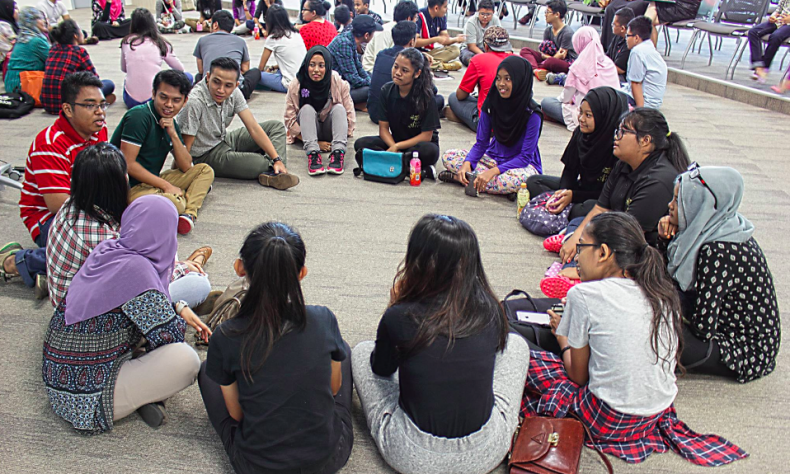
When the United States government in 1994 decided to provide poor families with the opportunity to move out of their ghettos into better neighbourhoods, believing this would alleviate their poverty, they did not anticipate their experiment would not yield the desired effects.
Many of those in the US$80 million (S$106 million at current rates) programme returned within several years to high-poverty neighbourhoods. They were not able to escape the clutches of income poverty.
Sociologist and urban planner Xavier de Souza Briggs, from the Massachusetts Institute of Technology (MIT) – who has tried to find answers to this failed experiment – points out that “disadvantaged people are often information-poor, lacking job networks and networking skills”. He also highlights that they do not have the information about the best opportunities to upgrade themselves.
The possibility for low-income families to obtain much-needed information, build their social capital and tap opportunities to improve their lives is what attracted me recently to document the success of the Family Excellence Circles (FEC) programme in a published report.
Parents reach out
Started by Malay-Muslim self-help group Yayasan Mendaki 10 years ago, the programme has an interesting genesis. Mendaki had developed an intervention programme to prepare children who had missed out on pre-school. Despite their best efforts, the intervention did not produce the kind of results Mendaki had hoped for. But what came out of this programme was a group of parents who decided on their own accord to reach out to other parents whose children were not enrolled in pre-school.
This outcome was recognised at that time by the Minister of Muslim Affairs and then-Minister of Environment and Water Resources, Dr Yaacob Ibrahim, in his speech at the Community Leaders Forum in 2004. He pointed out that these loose groupings of families existed in pockets. They not only supported one another but shaped behaviour and thus, there needed to be ways to replicate such informal groupings.
Today there are 45 FEC scattered around the island. The groups are made up of low-income Muslim families, a number of them single parent and blended families. Each group conducts a series of activities – members take part in group support meetings and embark on learning journeys together. Based on focus group discussions and family interviews with nearly 80 participants, it was apparent that the FEC programme did not merely offer support for members. There was the exchange of much-needed information, such as how to navigate through the complexities of the school system, how to motivate children in their educational pursuits and how to guide their teenagers through trying relationships.
The close relationships forged within the group have meant that participants are aware of the resources that other members are able to mobilise. For instance, husbands were not always able to attend group meetings, but wives were likely to volunteer their husband’s skills when needed.
Thus, if a group member had problems deciphering the information technology needs of their children, or if a single mother needed to be apprised of what National Service would entail for their sons, there was certainly somebody’s husband who could provide advice.
The subtle peer pressure within the group has spurred members to remain committed to their children’s education and their pursuit of family harmony. Members are motivated to pursue lifelong learning and career advancement, with those who attended Workforce Skills Qualification (WSQ) courses upgrading themselves, and sharing their experiences with others in the group. This helped remove inhibitions among those who found adult education a daunting task.
The families in these FEC have accepted that they can better their lives instead of being absorbed in their deficiencies or viewing themselves as incapable of taking charge of their lives. They are now aware that they have something to contribute to others in their community. They did not always start with such a positive mindset. The social networks developed through the programme, the motivation the groups provided and the awareness that they could access existing national support schemes have changed their perspectives.
It takes an FEC village
Tameez is one person who has benefited from the FEC. She joined the programme nearly a decade ago as a struggling single parent of three children. The FEC was the proverbial village which helped raise her children. Through the group support sessions and the workshops she has learnt important parenting strategies. She now knows how to set boundaries for her children without resorting to harsh disciplinary methods. She motivates her children in their studies and is proactive in communicating with her children’s school teachers so that she can better support her children’s learning.
While she and her husband of five years attend FEC meetings to find ways to better manage their financial situation, her children attend a youth meeting where they develop their confidence. The family actively volunteers to help other low-income families by providing child-minding assistance for parents who want to attend workshops.
The FEC is not the only programme available in Singapore to help low-income families. However, it is among the few which – rather than merely focusing on the needs of the low-income – have developed structures to empower participants to become part of the solution. More emphasis needs to be given to such initiatives. They may not be the kind of grand structural changes which some envisage are needed to help the poor, but these programmes can certainly make a big difference.
Dr Mathew Mathews is a Senior Research Fellow at the Institute of Policy Studies, NUS. This essay is based on his presentation at the MENDAKI Research Seminar ll – Empowering Learning Families, Realising Aspirations on April 25. It was first published in The Straits Times on 1 May 2015.
Top photo from Mendaki Facebook
